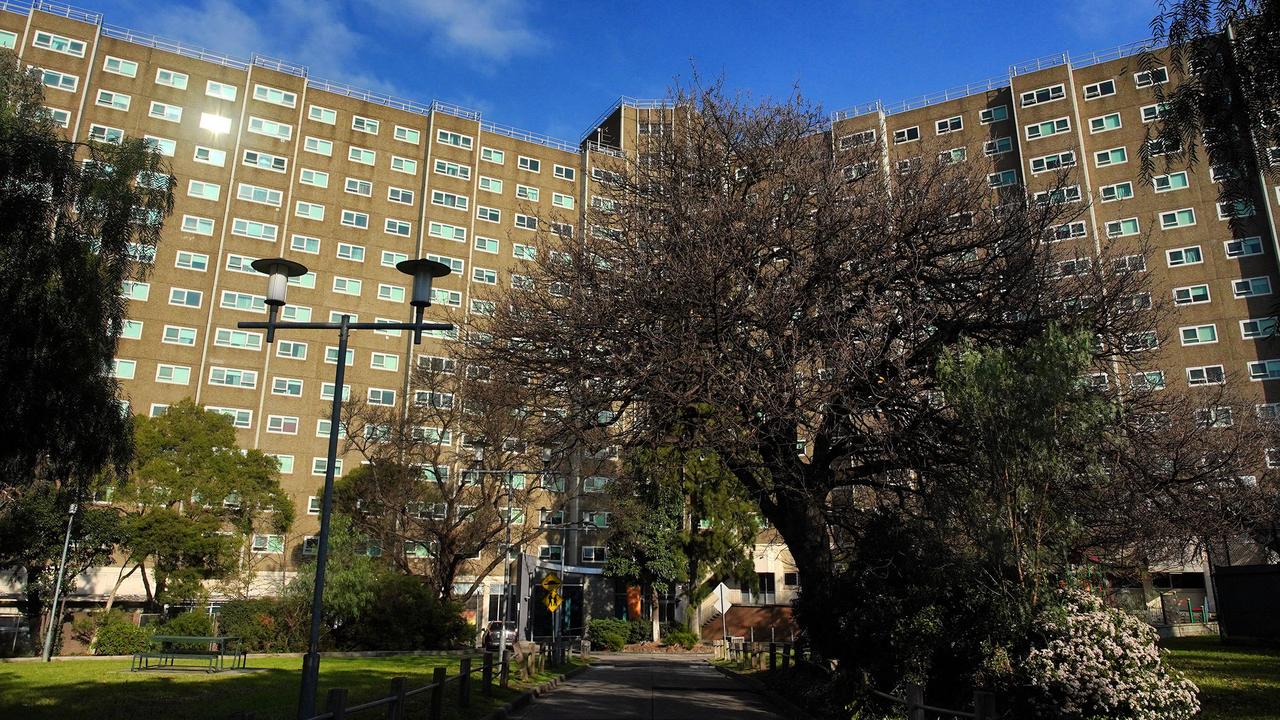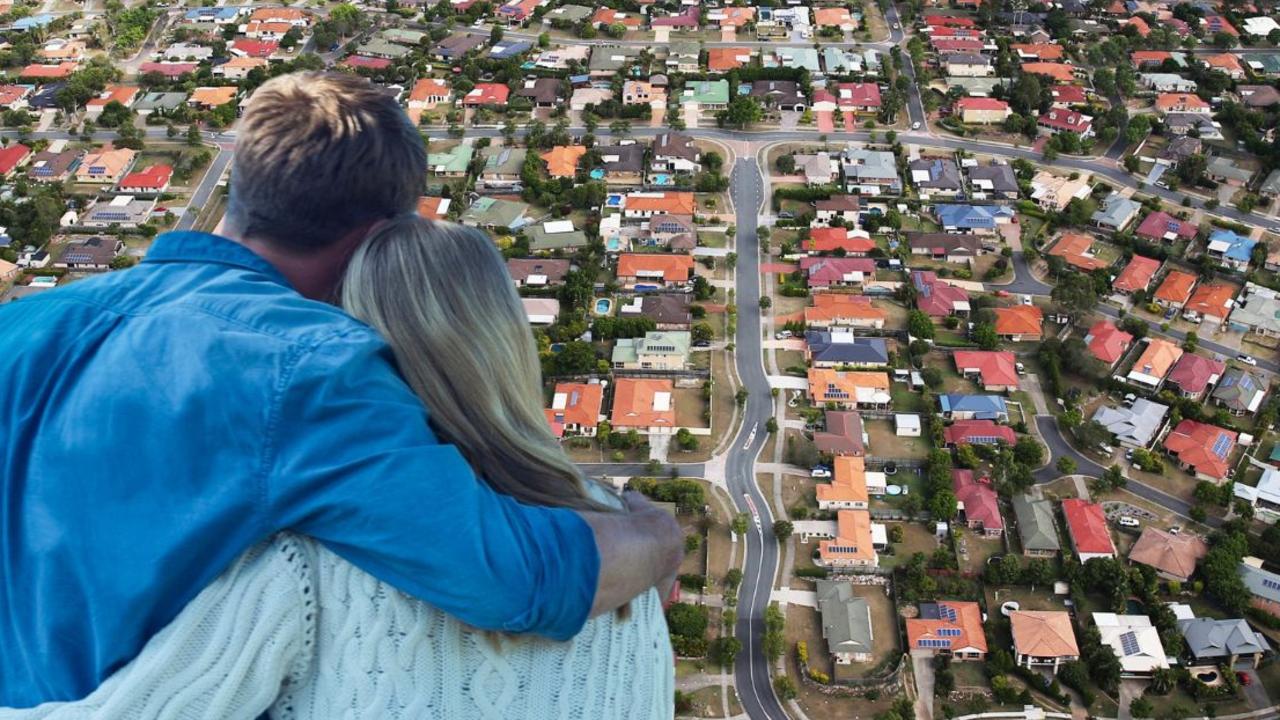Buying a home in your 20s: How to do it without financial help from your parents
Find out how a young Melbourne couple working at Woolworths have bought three properties. Plus: expert tips to help buyers in their 20s purchase without the bank of mum and dad.
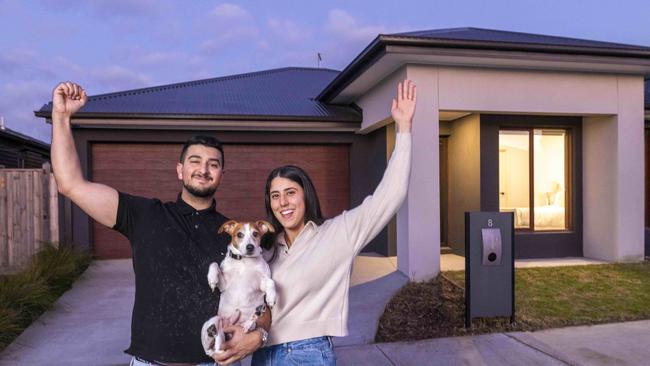
Property
Don't miss out on the headlines from Property. Followed categories will be added to My News.
Woolworths power couple Terry Talarico and fiance Monique Chetcuti are on to buying their third property while in their early 20s, all without any financial assistance from their parents.
The pair both hold down two jobs, taking on weekend and evening shifts as disability support workers alongside their main gigs as a manager and assistant manager overseeing the fresh food operations within two different Woolies stores.
And while they’re giving up time together to work hard today, they’re hoping to reap the rewards in the years to come.
RELATED: 25-year-old first-home buyer’s tips for building a nest egg
First-home buyers charge back into the real estate market
15 first-home buyer friendly suburbs where you can save thousands
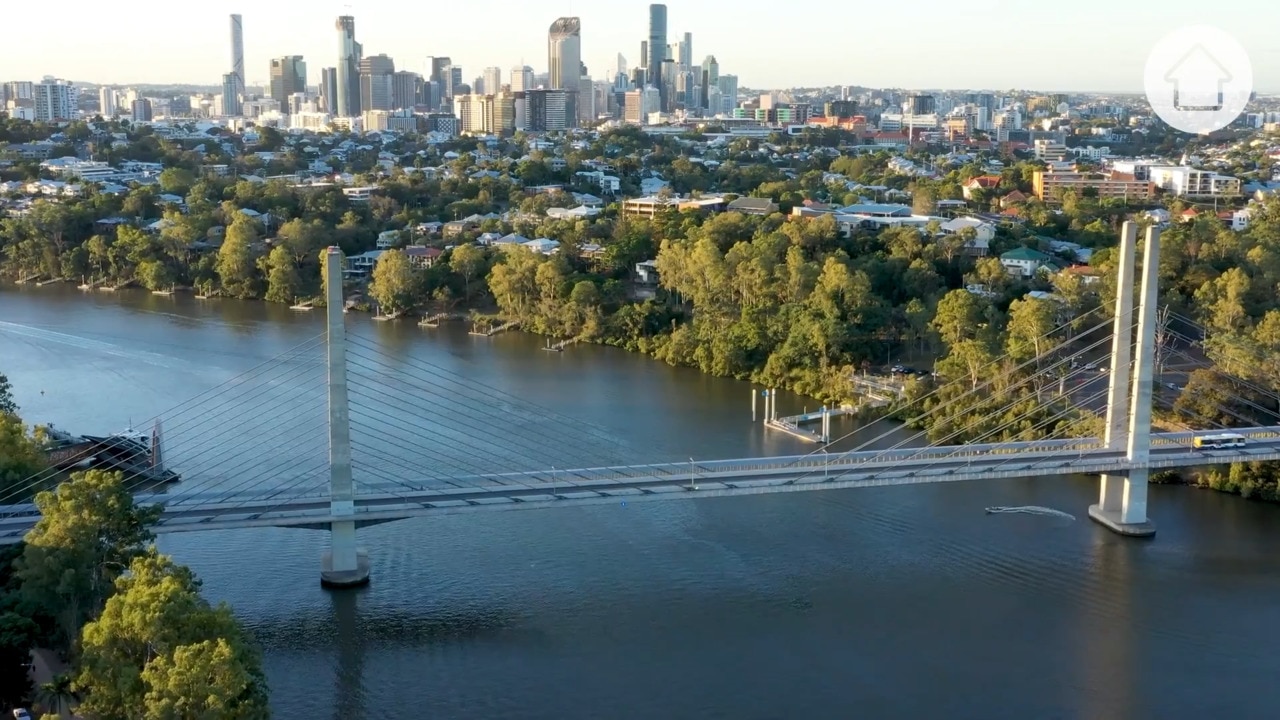
“I say, you have to sacrifice for the future if you want to get ahead,” Mr Talarico said.
Growing up in a family of a mother and three brothers who spent many years living in a rental home, he bought his first house – where he and Ms Chetcuti now live – in Melbourne’s northern suburbs in 2022.
They have just put a tenant into a Fraser Rise home they purchased together and have snapped up a Ballarat block with plans to build their next investment property there.
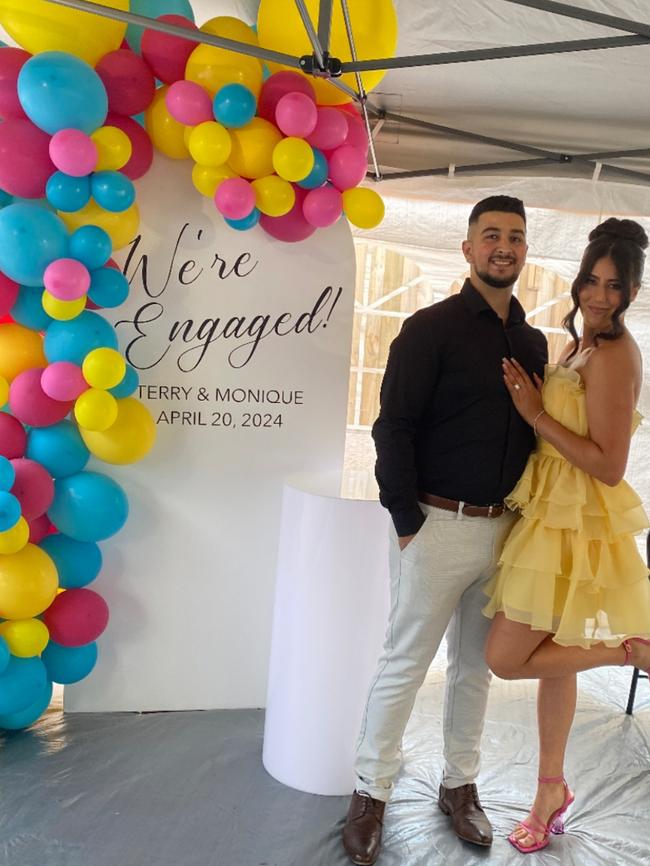
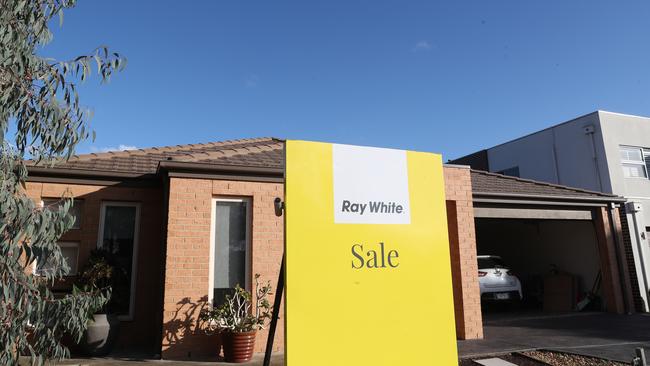
Mr Talarico and Ms Chetcuti sought advice from Melbourne-based Eda Property founder Anissa Cavallo, who provides selection and consulting services, on all of their purchases.
The mother-of-two started the business after building her own property portfolio, following her marriage collapse.
Ms Cavallo often helps first-home buyers and people wanting to become “rent-vestors”, renting while investing in a home which is leased to a tenant.
Working with Generation Z can mean educating them about saving a deposit, usually a five-figure sum, and their ability to pay back a home loan.
“If you don't have these two things you need to spend less or earn more, or a combination of the two,” Ms Cavallo said.
Unless they are already earning and saving enough, many of her clients start budgeting and get a second job including in ride-sharing, couriering, food delivery or retail.

Advantage Property Consulting director and buyers advocate Frank Valentic, who regularly pops up on television show The Block, said many young buyers were unaware they could apply for the Victorian Homebuyer Fund which involves the state government contributing up to 25 per cent of a purchase price if an eligible buyer has a five per cent deposit for a home priced up to $950,000 in Melbourne or Geelong, or $700,000 in the regions.
He also advised buying a first property for $650,000 or less to avoid paying stamp duty.
Another tip is to live with parents or family for as long as possible to save up, rather than leasing a home.
“Paying rent makes it much harder to save,” Mr Valentic said.
“Be nice to your parents so they don’t kick you out.”
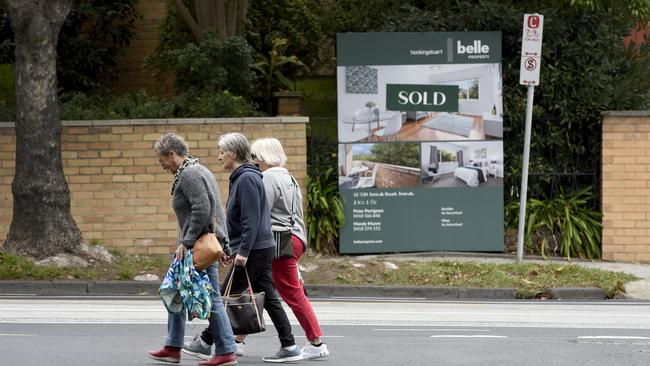
Melbourne-based WE Mortgage Solutions finance broker Chloe Paterson said that in the last year, about 60 per cent of her clients in their 20s had received assistance from parents which could include the older relatives providing cash or lending money, acting as loan co-guarantor, buying together with their grown-up child or using a family trust.
Ms Paterson said while buying a home could be intimidating for young people without family help, it remained within reach.
“With rising interest rates, price of living, tougher lending conditions and high property prices it is coming a lot harder for most, and impossible for some,” she said.
“But with the right guidance and advice, there are strategies to overcome the challenges.”
The experts also suggested winter could be prime time for 20-somethings looking to buy as the colder months traditionally see less buyers out and about, meaning less competition – although that means less stock for sale too.
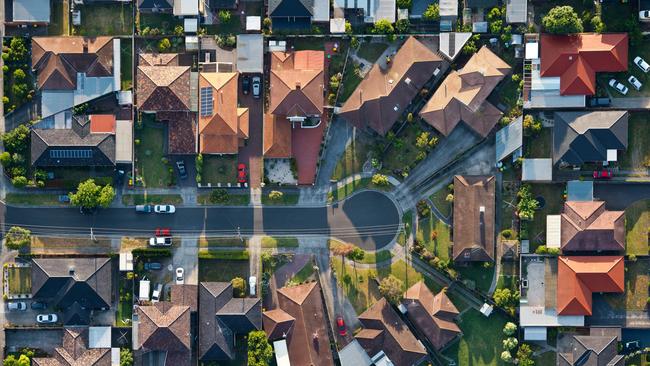
EXPERT TIPS FOR YOUNG BUYERS:
Anissa Cavalo
+ Get advice from the right sort of professional and ensure you are asking the right questions. Have they done what you want to achieve? What can you learn from them? What are their credentials and what resources have they got to do the research that you can’t? More importantly, can they guide you independently? It’s important to align with someone that makes you feel empowered and respected. If you don’t leave the meeting having learned something important, then perhaps your time is better spent elsewhere.
+ Get your foot on the ladder and forgot about the dream home (just for now). This is not a question of lifestyle today, it’s about lifestyle tomorrow. If you want to build passive income and financial independence, you need to achieve capital growth. Some properties, like apartments or townhouses, are less likely to provide growth. You may need to “rentvest” in areas that you don’t want to live for now. It will be easier on your pocket and give you more capital growth opportunities.

+ Be brave. Invest in Victoria as soon as possible. It is experiencing once-in-a-lifetime affordability compared to other property markets. And, it is just a matter of time before market fundamentals overcome the local sentiment. This is a wonderful opportunity for savvy young investors to make strong short-term gains.
Frank Valentic
+ Look into government programs which can help first-home buyers, such as the Victorian Homebuyer Fund. But get in quick or in case it reaches a quota and you need to reapply again in six months or a year’s time.
+ Australia’s First home super saver (FHSS) scheme allows eligible people to make voluntary contributions into a super fund to save for a first home. You can apply to have a maximum of $15,000 of your voluntary contributions, from any one financial year, included in your eligible contributions to be released under the FHSS scheme. You are limited to a total of $50,000 contributions across all years.
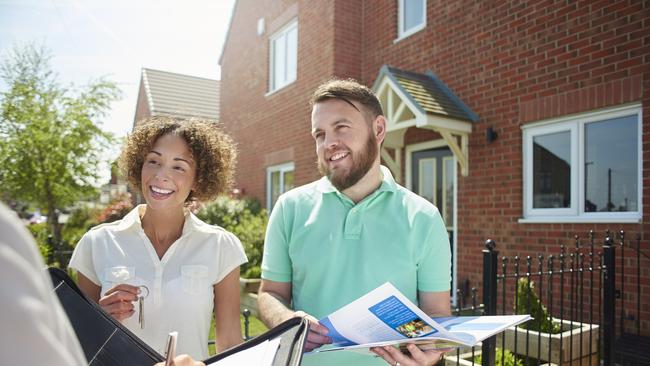
+ Buy your first home for $600,000 or less to avoid paying stamp duty.
+ Try to get into the market as soon as possible, using a smaller deposit. If you can, get in this year before interest rates get cut as expected next year. This is because rate cuts tend to lead to rising prices.
+ Live with parents or family for as long as possible to save on rent. If you need to rent, consider living a sharehouse or renting a room so you can put the money saved on leasing a bigger place towards a home deposit.

+ Consider units or apartments for affordability but try to get one with a land component, such as a courtyard, as these generally gain more value into the future.
+ Buy with your head and not your heart. Paying more than a property is worth because of an emotional connection to a residence will not help if a bank values it at less than you paid. Because of this, try to avoid auctions, which can sometimes cause emotions to run high. Instead, try to buy through a private sale of off-market.
Chloe Paterson
+ Engage a broker – cliche I know, but we will be one of your biggest tools to enter the market no matter what stage you are currently at. Guidance and the right advice is key.
+ Care about your finances. It’s very common to see young clients who don’t have an understanding of their current financial situation, and when comes time to apply for a home loan, things like credit history, liabilities and current lifestyle trends can massively impact the ability to purchase.
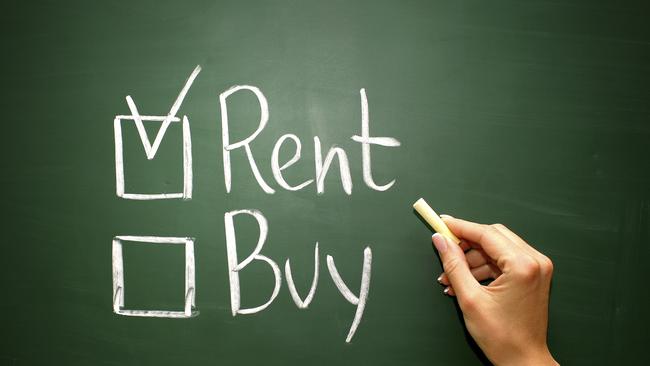
+ Take advantage of financial support. Victoria currently has various incentives for first-home buyers that include grants and/or stamp duty concessions, as well as seeking other forms of assistance that may be available from your parents.
+ Explore all your options. Once you know your workable budget, start looking into the types of property you can realistically afford – and don’t get stuck on one idea of what your home should be.
HOW WE DID IT
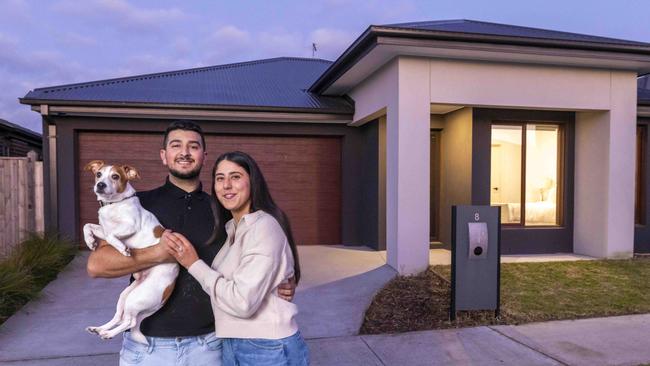
Woolworths employees Terry Talarico and Monique Chetcuti have built a property portfolio that many people marvel at.
The engaged couple, both 23, work for the supermarket chain and have second jobs as disability support workers to help fulfil their aim of setting themselves up for the future.
Mr Talarico said living with his mother during the Covid-19 pandemic lockdowns, and not having to pay rent while earning roughly $70,000 per year, helped him save a $50,000 deposit.
In 2022, he put this towards a Mickleham house and land package which cost a bit more than $500,000.

He also took advantage of the $25,000 HomeBuilder Grant the federal government made available from June to December 2020.
Across two years, Ms Chetcuti saved about $90,000 which helped her and Mr Talarico secure an investment property in Melbourne’s northwest.
Seeking guidance from Eda Property founder Anissa Cavallo for all their purchases, they used equity from the Mickleham abode to buy a Ballarat block where they plan to build another investment property.
Mr Talarico said although his and Ms Chetcuti’s parents had not provided them with any financial assistance to acquire property, their families were still incredibly supportive.
Most people he and his fiance meet cannot believe two people their age own three properties.
“I wish I’d started investing in property in the womb, instead of spinning around,” Mr Talarico laughed.
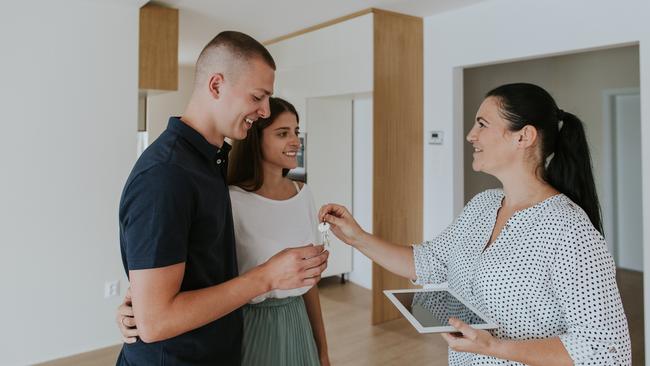
Terry Talarico’s Top Tips
+ Seek professional advice. They don’t teach this stuff in school that I would consider important. But someone like Anissa (Eda Property founder Anissa Cavallo) has all the knowledge and expertise and is able to deliver it in a really digestible way. In short, you don’t know what you don’t know and there are no stupid questions.
+ My second tip would be that you need to be prepared to sacrifice, you might need to get a second job or not have a holiday every year. No one has ever “saved” a million bucks.
+ The third tip would be, don’t be in a rush to move out. A lot of young people want to move out as soon as they turn 18 but that will set you back drastically in terms of trying to save.
Sign up to the Herald Sun Weekly Real Estate Update. Click here to get the latest Victorian property market news delivered direct to your inbox.
MORE: Ten affordable and liveable Melbourne suburbs worth the money: PRD
PropTrack: Melbourne vacancy rate lifts for third month, rent crisis could ease in 2025
Victorian suburbs owners never want to leave turning them into millionaires
Originally published as Buying a home in your 20s: How to do it without financial help from your parents


